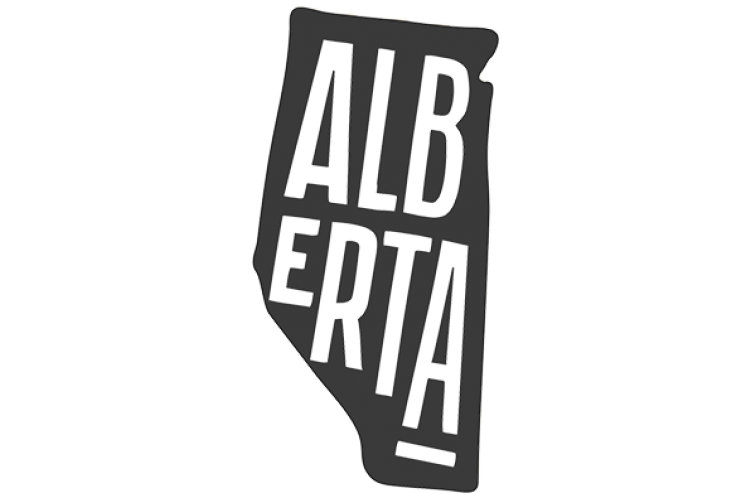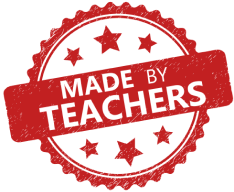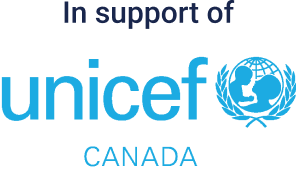Alberta Grade 8

CLICK HERE FOR CURRICULUM CONNECTIONS, LESSONS AND SUPPORT RESOURCES.
Kids Boost Immunity (KBI) provides educational content (lessons and support materials) developed by teachers and where needed, health experts, that is directly linked to curriculum and is available completely for free. Each lesson is paired with an online quiz that students can take on a laptop, tablet, or phone. Every time a student scores 80% or higher on a quiz, we donate life-saving vaccines to UNICEF Canada. To learn more about KBI, click here.
Click on the overarching curriculum themes below to see the curriculum outcomes that match KBI educational content. The full Grade 8 Alberta Curriculum Connections document is here.
- Science
-
Curricular outcomes:
Scientific Curiosity and Vaccine Discoveries
- Goal: Encourage students at all grade levels to develop a critical sense of wonder and curiosity about scientific and technological endeavours.
Critical Thinking & Evaluating Information/ Navigating the World of Online (Mis)Information
- Applicable to all units
- Scientific Inquiry- Attitudes: Students will be encouraged to: Seek and apply evidence when evaluating alternative approaches to investigations, problems and issues (e.g., take the time to accurately gather evidence and use instruments carefully; consider observations, ideas and perspectives from a number of sources during investigations and before drawing conclusions and making decisions)
Diversity of Living Things/ Immune System & How Vaccines Help Prevent Diseases
- Science- Cells & Systems
- CS8.1. Investigate living things; and identify and apply scientific ideas used to interpret their general structure, function and organization
- CS8.2. Investigate and describe the role of cells within living things
- CS8.3. Interpret the healthy function of human body systems, and illustrate ways the body reacts to internal and external stimuli
- CS8.4. Describe areas of scientific investigation leading to new knowledge about body systems and to new medical applications
Environment & Climate Change
- Science- Freshwater & Saltwater Systems
- WS8.1. Describe the distribution and characteristics of water in local and global environments, and identify the significance of water supply and quality to the needs of humans and other living things
- WS8.2. Investigate and interpret linkages among landforms, water and climate
- WS8.3. Analyze factors affecting productivity and species distribution in marine and freshwater environments
- WS8.4. Analyze human impacts on aquatic systems; and identify the roles of science and technology in addressing related questions, problems and issues
Applicable KBI lessons:
1. Scientific Curiosity and Vaccine Discoveries
- Literacy builder worksheet/answer guide
- Lesson worksheet/answers
- Inquiry activities/answer guides
2. Critical Thinking & Evaluating Information
- Literacy builder worksheet/answer guide
- Lesson worksheet/answers
- Video worksheet/answers
- Inquiry activities/answer guides
- Numeracy activity/answers
3. Navigating the World of Online (Mis)Information
- Inquiry activities
4. Diversity of Living Things
- Literacy builder worksheet/answer guide
- Lesson worksheet/answers
5. Immune System & How Vaccines Help Prevent Diseases
- Literacy builder worksheet/answer guide
- Lesson worksheet/answers
- Video worksheet/answers
- Numeracy activity/answers
- Social Studies
-
Curricular outcomes:
DIMENSIONS OF THINKING
- 8.S.1 develop skills of critical thinking and creative thinking:
- analyze the validity of information based on context, bias, source, objectivity, evidence and reliability to broaden understanding of a topic or an issue
RESEARCH FOR DELIBERATIVE INQUIRY
- 8.S.7 apply the research process:
- develop a position that is supported by information gathered through research
- determine how information serves a variety of purposes and that the accuracy or relevance of information may need verification
- practise the responsible and ethical use of information and technology
- plan and conduct a search, using a wide variety of electronic sources
- develop a process to manage volumes of information that can be made available through electronic sources
- evaluate the relevance of electronically accessed information to a particular topic
- make connections among related, organized data, and assemble various pieces into a unified message ¾ refine searches to limit sources to a manageable number
- 8.S.9 develop skills of media literacy:
- examine techniques used to enhance the authority and authenticity of media messages
- examine the values, lifestyles and points of view represented in a media message
- analyze the impact of television, the Internet, radio and print media on a particular current affairs issue
SOCIAL STUDIES AND ABORIGINAL PERSPECTIVES AND EXPERIENCES
- For historical and constitutional reasons, an understanding of Canada requires an understanding:
- of Aboriginal perspectives
- of Aboriginal experiences
Applicable KBI lessons:
1. Critical Thinking & Evaluating Information
- Literacy builder worksheet/answer guide
- Lesson worksheet/answers
- Video worksheet/answers
- Inquiry activities/answer guides
- Numeracy activity/answers
2. Navigating the World of Online (Mis)Information
- Inquiry activities
3. Indigenous History on Turtle Island
- Lesson worksheet/answers
- 8.S.1 develop skills of critical thinking and creative thinking:
- English Language Arts (ELA)
-
Curricular outcomes:
General Outcome 1
- 1.1 Discover and Explore
- revise understanding and expression of ideas by connecting new and prior knowledge and experiences
- review, reread, discuss and reflect on oral, print and other media texts to explore, confirm or revise understanding
- seek out and consider diverse ideas, opinions and experiences to develop and extend own ideas, opinions and experiences
- discuss and respond to ways that forms of oral, print and other media texts enhance or constrain the development and communication of ideas, information and experiences
1.2 Clarify and Extend
- acknowledge the value of the ideas and opinions of others in exploring and extending personal interpretations and perspectives
- reconsider and revise initial understandings and responses in light of new ideas, information and feedback from others
General Outcome 2
- 2.1 Use Strategies and Cues
- use strategies to supplement and extend prior knowledge and experiences when interpreting new ideas and information
- monitor understanding; skim, scan or read slowly and carefully, as appropriate, to enhance comprehension
- 2.2 Respond to Texts
- expect that there is more than one interpretation for oral, print and other media texts, and discuss other points of view
- discuss how techniques, such as word choice, balance, camera angles, line and framing, communicate meaning and enhance effects in oral, print and other media texts
- 2.3 Understand Forms, Elements and Techniques
- summarize the content of media texts, and discuss the choices made in planning and producing them
General Outcome 3
- 3.1 Plan and Focus
- identify and trace the development of arguments, opinions or points of view in oral, print and other media texts
- select the most appropriate information sources for topic, audience, purpose and form
- 3.2 Select and Process
- obtain information from a variety of sources, such as artifacts, debates, forums, biographies, autobiographies, surveys, documentaries, films, CDROMs, charts and tables, when conducting research
- adjust rate of reading or viewing to suit purpose and density of information in print or other media texts
- develop and use criteria for evaluating the usefulness, currency and reliability of information for a particular research project
- 3.3 Organize, Record and Evaluate
- evaluate the relevance and importance of gathered information; address information gaps
General Outcome 5
- 5.1 Respect Others and Strengthen Community
- compare ways in which oral, print and other media texts reflect specific elements of cultures or periods in history
Applicable KBI lessons:
1. Critical Thinking & Evaluating Information
- Literacy builder worksheet/answer guide
- Lesson worksheet/answers
- Video worksheet/answers
- Inquiry activities/answer guides
- Numeracy activity/answers
2. Navigating the World of Online (Mis)Information
- Inquiry activities
- 1.1 Discover and Explore
Curriculum-Related Themes Throughout the Year
- Reflecting on hardships and courage during WWII (November)
-
Applicable KBI lessons:
1. Remembrance Day / Veterans Day / Armistice Day
- Reflecting on leadership and the skills needed to help make a difference for ourselves and others (December)
-
Applicable KBI lessons:
1. Christmas in No Man’s Land - Reflecting on Kindness
- Inquiry/creative activities
- Highlighting some key inspirational leaders during Black History Month as well as some experiences of refugees from different parts of the world (February)
-
Applicable KBI lessons:
1. Black History Month
2. Refugee Experiences
- Lesson worksheet/answers
- Inquiry activities
- Celebrating Inspiring Women in STEM (March)
-
Applicable KBI lessons:
1. International Women's Day - Celebrating Inspiring Women in STEM
- Literacy builder worksheets/answer guides
- Numeracy activity
- Inquiry activities
- Understanding communicable diseases and how they are spread, and learning about immunization. Suggested during flu season, immunization awareness week, and school vaccinations (if applicable)
-
Applicable KBI lessons:
1. Immunization Awareness Week
2. The Spread of Infectious Diseases
3. Scientific Curiosity and Vaccine Discoveries
- Literacy builder worksheet/answer guide
- Lesson worksheet/answers
- Inquiry activities/answer guides
- Indigenous History on Turtle Island - pre-contact, contact, treaties, colonialism, The Indian Act (June)
-
Applicable KBI lessons:
1. Indigenous History on Turtle Island




